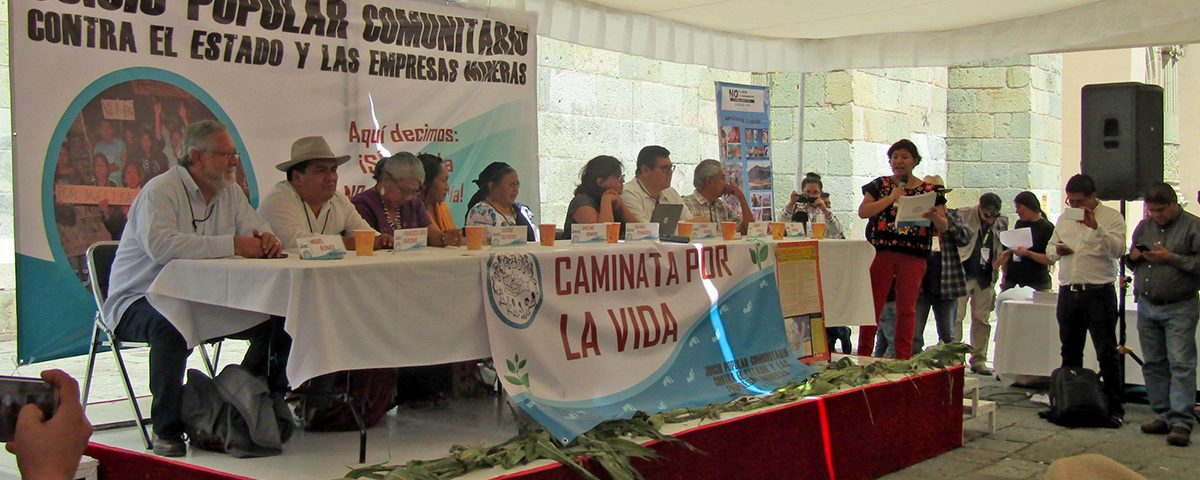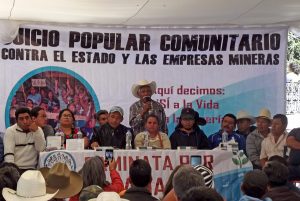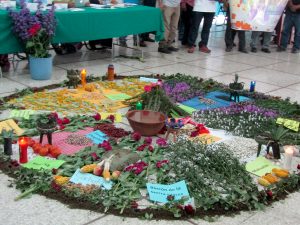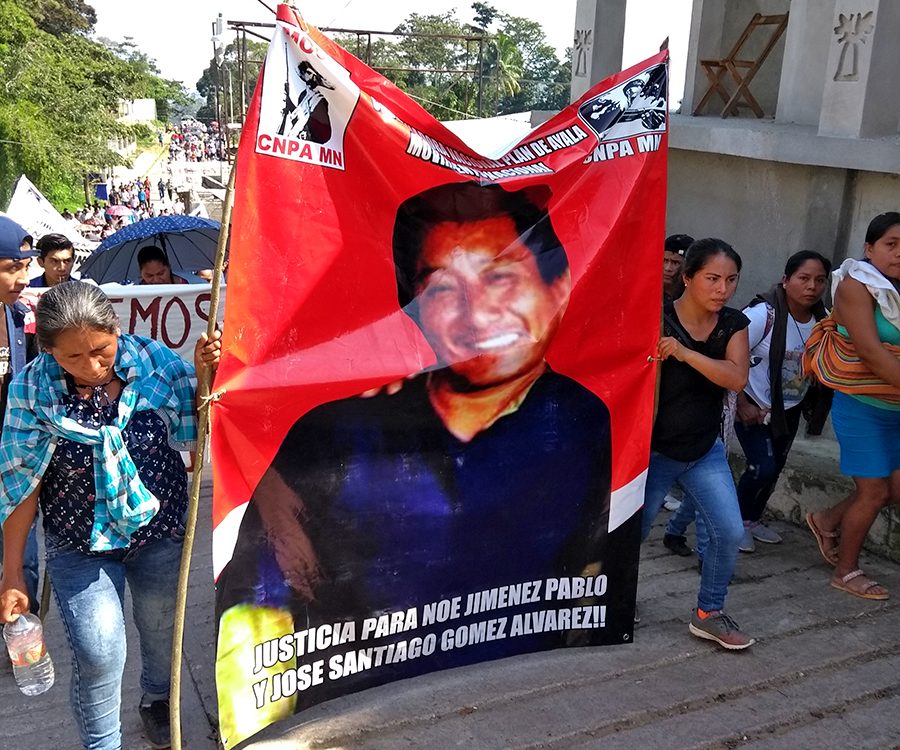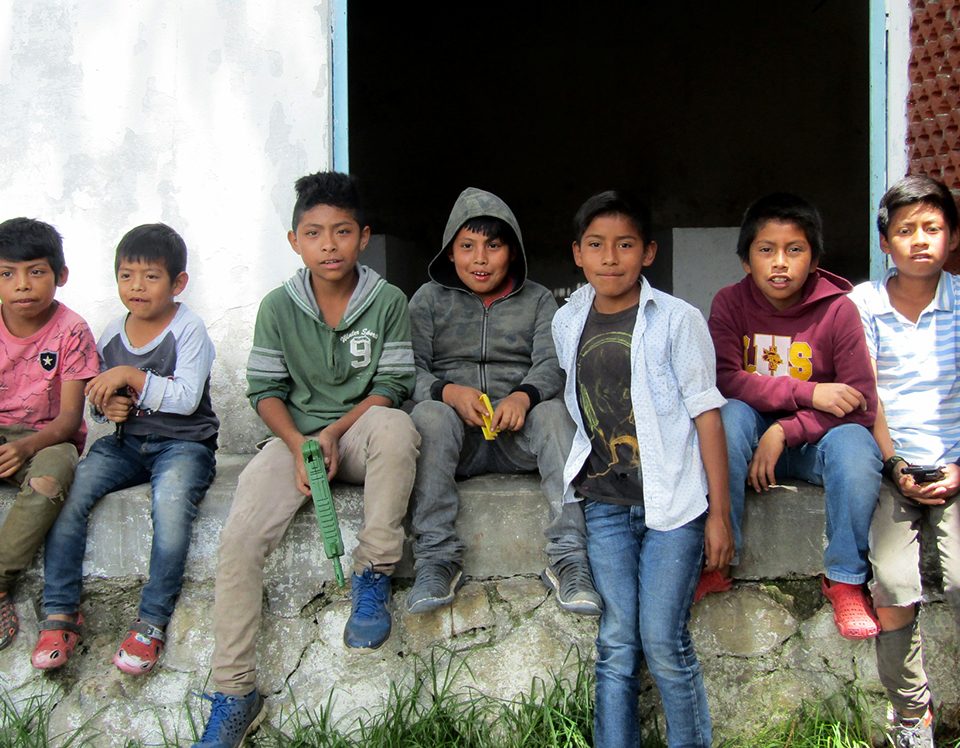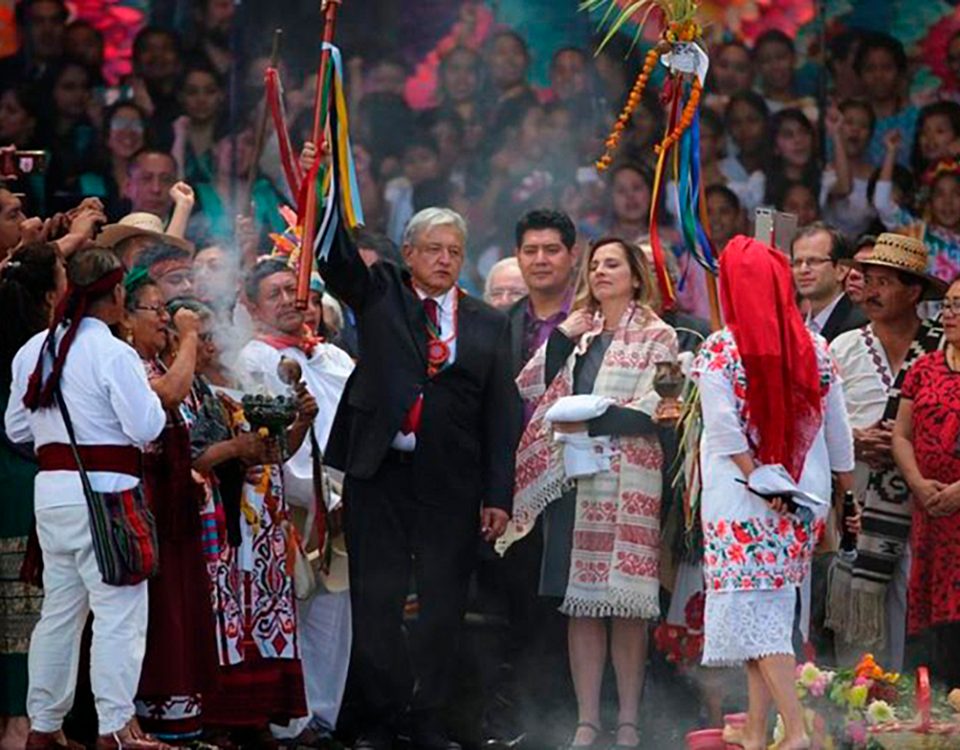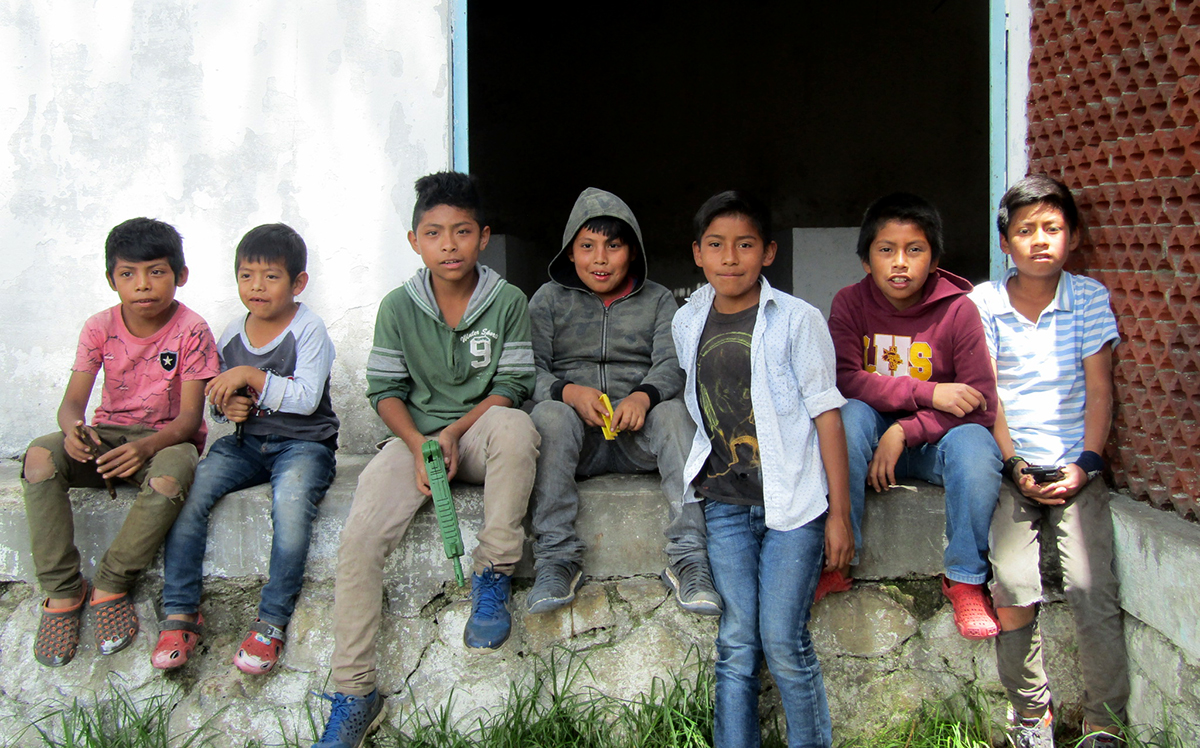
FOCUS: Violence against Children and Adolescents in Mexico – Reality and Responses
13/03/2019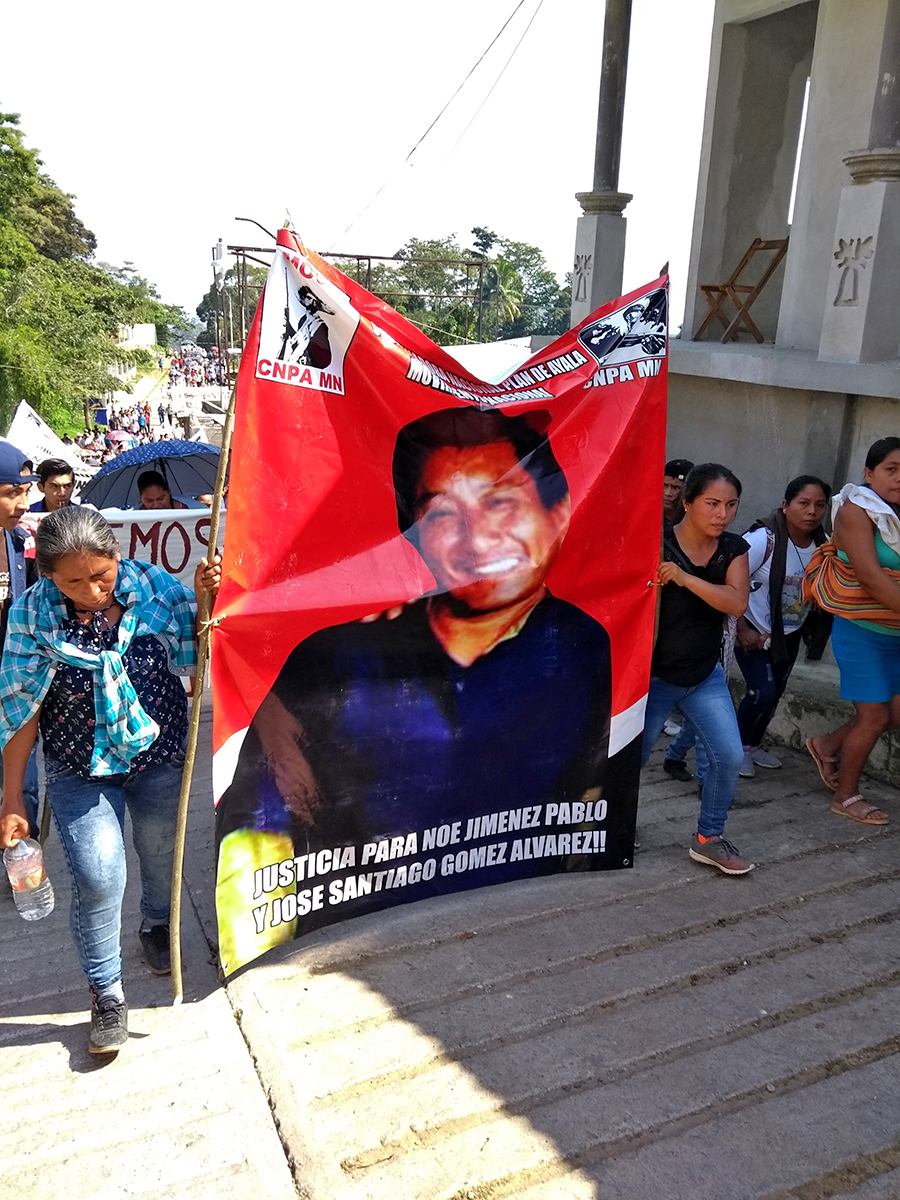
SIPAZ Activities (From mid-November 2018 to mid-February 2019)
13/03/2019“The Popular Peoples’ Trial opens a new stage in the defense of our territories in the face of tourism, mining, hydroelectric, and other infrastructure projects. It shows us the cracks in this model of development and paints a panorama of defense at the state level: the demand for our autonomy and community organization are fundamental in sparking the changes we desire and strengthening the defense of our territories.”
In the framework of International Human Rights Day, December 10, 2018, the peoples, communities, and organizations that participated in the “Popular Community Trial Against the State and Mining Companies in Oaxaca” that took place on November 11 and October 12 of last year, publicly presented the final ruling.
This process was aimed at “denouncing the violations of our rights, produced by concessions and mining projects, and building action and effective solutions for the defense of our territories.”
At the time, the Popular Community Trial had the participation of 52 communities, that presented 22 cases of damage caused by mining in five regions of the state, including “irreversible damage to ecosystems, river pollution, criminalization of community authorities and community defenders, destruction of the social fabric and widespread insecurity in the regions where these mining projects are operated by mining companies, armed groups, and State authorities.”
The Popular Community Trial report details that as of 2017, 42 mining projects were registered in Oaxaca, from 38 companies with headquarters in Canada, the United States, Peru, Australia, and Mexico. Of these, 36 are in the exploration stage of mining, two are in the development stage, one has been postponed, and two have already extracted. There are 322 concessions granted by the Ministry of Economy for mining exploration and exploitation, representing a total area of 462,974 hectares (5% of territory in Oaxaca).
In addition to the cases presented, the wide range of experiences in the form of struggles for the defense of land and territory in Oaxaca was heard during the trial, recognizing that “the peoples and communities of Oaxaca have defended, protected, and conserved our ancestral territories, we have woven and constructed proposals and political, social, and economic alternatives based on our internal systems in the exercise of our right to self-determination and autonomy.” These experiences have come out of various modalities: community, agrarian, and municipal assemblies; appointment of community committees to protect and care for the territory; declarations of territories prohibited for mining; communal statutes and internal regulations; cultural festivals; meetings, congresses, and informative forums; informative campaigns in educational, health, and community centers; the formation of regional assemblies for the defense of the territory; complaints filed with the Federal Environmental Protection Agency (PROFEPA in its Spanish acronym), the Ministry of Environment and Natural Resources (SEMARNAT in its Spanish acronym), the Ministry of Economy and the National Water Commission (CONAGUA in its Spanish acronym); mobilizations and regional protests; taking control of machinery and installations of mining projects; filing injunctions against mining concessions; public denunciations and press conferences demanding the cancellation of mining projects and concessions; civil observation missions; delivery of complaints to UN rapporteurs and visits of the OHCHR, among other actions of care and defense of the environment.
Nevertheless, it was concluded that “despite the complaints and demands expressed by various sectors of the public and social movements, based on various treaties, agreements, and the Political Constitution of the United Mexican States, there have been no substantial responses or advances. On the contrary, the justice system has protected business interests and served as an instrument of effective control against the legitimate interests of citizens. For the plaintiffs, the justice system has been dismissive, inefficient, and ineffective.”
From this assessment, the Popular Community Trial was proposed as “a new stage” and “a peaceful struggle of the indigenous peoples of Oaxaca to demand respect for their rights that have been violated by the State and mining companies” outside of the official judicial system, “peoples and communities judged the responsible authorities and mining companies for the violations committed in the different areas of peoples’ lives, against their individual and collective rights, and the grave effects on land and territory.”
The jury, made up of national and international experts, ruled that the rights to self-determination, to autonomy, to land and territory, to free prior and informed consultation, to public information, to a safe environment, to health, and to the protection of those who defend human rights, have been violated.
For this reason, the verdict of the trial raised the need to cancel the 322 concessions and the 42 mining projects in the state. The verdict also demanded the immediate suspension of the granting of mining titles “until a new legal framework that fully and effectively respects the rights of indigenous peoples is established in international treaties and in the Constitution, and the repeal of the current mining law and other legislation that is related to this industry.” It also urged the authorities to approve laws and public policies that protect the rights of indigenous peoples, that recognize them as subjects of public law and that include effective mechanisms for reparations.
The ruling also raised the need to protect those who defend their territories so that they can do so in “conditions of freedom and security” and demanded that “the policy of criminalizing social protest be stopped, punishing those responsible for murders, immediate presentation of the missing persons who disappeared while defending the territory, suspending arrest warrants against defenders of land and human rights, and an end to individual and collective threats.
“Yes to life, no to mining!” or “Neither gold, nor money, mining kills!” are slogans that resonated both in the trial and in the delivery of the ruling.

